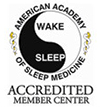888-503-2762
Hablamos Español
- Home
- •
- Telemedicine
- •
- DME Orders
- •
- Videos
- •
- SEC Non-Profit
- •
- Office Locations
- •



|
Don't let Snoring Break Your Heart!
|
SNORING threatens health – Snoring typically occurs when the tongue and throat muscles relax during sleep causing the airway space in the back of the throat to narrow. Breathing through a narrow airway causes a vacuum that pulls on the throat's soft tissue causing it to vibrate, which creates the snoring sound. This vacuum in the throat also spreads to the chest where the heart is located, causing a strain on the heart and the possibility for oxygen in the bloodstream to drop to dangerously low levels. When these factors occur night after night, year after year, they instigate the problems listed above. Additionally, new studies have also shown OSA causes increased insulin resistance resulting in poorly controlled diabetes.
 |
 |

For years people have thought of snoring as nothing more than a simple annoyance during the night: snoring is so common that we do not view it as a medical problem. Recent statistics suggest that this seemingly simple noise problem may in fact increase the risk of high blood pressure, stroke, heart attack, and daytime sleepiness.
Studies have demonstrated that in many people, snoring can cause an increase in chest pressures which can influence blood flow in the heart and lungs. This may be the cause of some of the medical problems in people who snore.
Many people who snore have another problem known as sleep apnea.
Apnea is a Greek word, which means, "want to breathe." People with obstructive sleep apnea have pauses in their breathing while asleep. These pauses in breathing occur when the airway collapses during sleep. After a few seconds the person briefly awakens, frequently producing a grunting, gasping, or snorting sound.
Obstructive sleep apnea is more common in obese people and more common in men, but it is not just obesity that can cause this problem. People with a small jaw, large tongue, or large tonsils are at higher risk of having this problem as well. In fact, any condition which can narrow the opening in the back of the throat or possibly the nasal passages can increase the risk of obstructive sleep apnea.
It is important to know the consequences of this problem if left untreated. Some of the more common problems associated with obstructive sleep apnea are excessive daytime sleepiness and an increased risk of high blood pressure, heart attacks and stroke.
See your physician and ask about being referred to a sleep disorders center. This is a special testing facility that evaluates people for sleeping problems. If your doctor does not feel this is necessary, don't be discouraged. Most physicians have not been taught very much about sleep medicine in medical school and therefore may not recognize this problem in their patients. Be persistent. You can be seen by a sleep specialist and, if needed, a sleep study can be performed on you during the night.
The most effective treatment to date for sleep apnea is called nasal CPAP (Continuous Positive Airway Pressure). An individual wears a mask on their nose at night that administers air pressure, keeping the upper airway open. This allows the individual to breathe throughout the night without repetitive awakenings. If a person only snores and does not suffer from excessive daytime sleepiness, then CPAP is not the appropriate treatment.
Dental appliances have been used for snoring. Sometimes these devices can also prevent apnea as well. Studies have demonstrated that dental appliances work for snoring and sleep apnea, but not in all patients. Surgery has been used to treat these problems. The most frequently performed surgery is a procedure where the soft tissue in the back of the throat including the uvula is cut away or reduced in size with a new microwave needle or a laser. Although this may work well for snoring, unfortunately most patients who have sleep apnea are not adequately treated with these procedures. There are other more extensive surgeries that can be performed for sleep apnea.
A sleep specialist who is very familiar with these procedures should explain them to you. If you snore at night and think you might have sleep apnea, contact your doctor. If your doctor is not familiar with this type of problem, have him or her contact us directly.
November 09, 2010 article: Victoria Wright, Sadler Clinic.
by Jerald H. Simmons, MD: February 2012 issue of the California Dental Association Journal
Conditions that affect sleep can impact overall health. More than 70 million Americans suffer from problems with sleep. The purpose of this article is to provide the basic science of sleep physiology and how it relates to disorders that are pertinent to dentistry. Concepts are presented that explain airway dynamics and how the jaw and tongue influence airway obstruction. Additionally, explanation is given on an association between temporomandibular jaw dysfunction and bruxism during sleep.
![]()